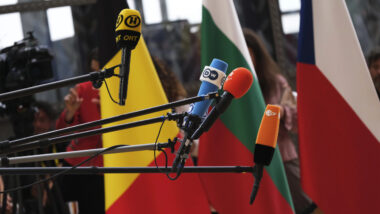Weltweite online Whistleblowing Umfrage
In dieser Umfrage möchten wir ihre Ansichten bezüglich „Whistleblowing“ erfahren. Whistleblowing ist, wenn jemand Insider Informationen bezüglich groben Fehlverhaltens veröffentlicht; entweder gegenüber Menschen oder Autoritäten, die in der Lage sein könnten, etwas dagegen zu tun.
Forscher der Griffith Universität und der Universität von Melbourn
So schön können Daten sein
Welch enormes Potenzial in Infografiken steckt, hat ein Visualisierungswettbewerb gezeigt, den McCandless Anfang des Jahres startete. Der Londoner stellte eine Excel-Tabelle mit Wirtschaftsdaten aus der Filmbranche ins Netz und lobte 5000 Dollar Preisgeld für die besten Visualisierungen aus. 671 Filme der Jahre 2007 bis 2011 umfasste die Liste – darunter Blockbuster wie „Avatar“, Animationen wie „Wall-E“ und Michael Moores Dokumentation „Sicko“.
Technology Review – Holger Dambeck
ISPs split over UK open internet code of practice
Ten ISPs including BT, O2 and Talktalk backed the agreement promising not to restrict or block content unless there was a reason to deploy „reasonable traffic management practices“.
But Virgin Media said the principles set out were too vague while Vodafone said the code was „impractical“.
Hackers Linked To China’s Army Seen From EU To D.C.
In just 14 minutes of quick keyboard work, they scooped up the e-mails of the president of the European Union Council, Herman Van Rompuy, Europe’s point man for shepherding the delicate politics of the bailout for Greece, according to a computer record of the hackers’ activity.
Over 10 days last July, the hackers returned to the council’s computers four times, accessing the internal communications of 11 of the EU’s economic, security and foreign affairs officials. The breach, unreported until now, potentially gave the intruders an unvarnished view of the financial crisis gripping Europe.
Bloomberg – Michael Riley, Dune Lawrence
After the Arab Spring: new paths for human rights and the internet in European foreign policy
In the medium term, the EU should also consider developing effective regulation of dual use technologies, which are a separate category from the worst of the worst and exist in a far more complex regulatory space. It may also be possible to limit the demand for repressive technologies by actively supporting organisations promoting the democratic control of the Intelligence Services, Law Enforcement and Military Intelligence in third countries. Lastly, the EU should make all public sector funding, financial support and involvement in the creation of communications infrastructure conditional on basic human rights principles.
Europäisches Parlament – Ben Wagner
Redrafted US cyber security act could still threaten internet freedom
The latest draft of the US Cybersecurity Act could restrict internet freedom and result in the prosecutions of ISPs and peer-to-peer media sharers.
The Act failed to pass in February 2012, but Senator Joseph Lieberman and his supporters have returned with a redraft, which they want passed as quickly as possible in order to address the „clear and present danger“ of cyber criminality and aggression.
Computing News – Peter Gothard




0 Ergänzungen
Dieser Artikel ist älter als ein Jahr, daher sind die Ergänzungen geschlossen.